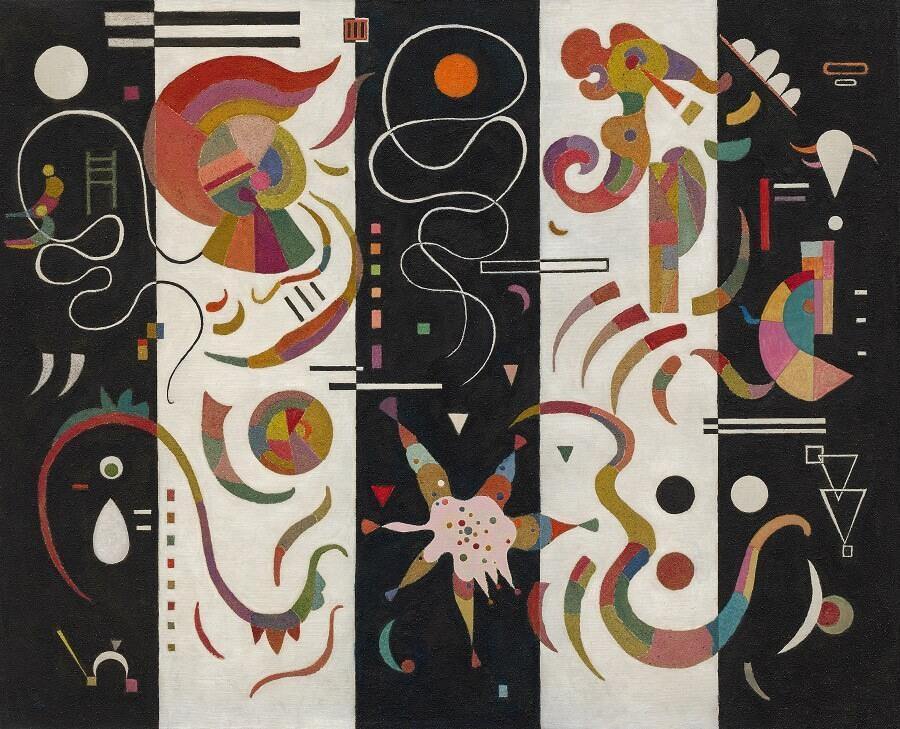Description
Wassily Kandinsky's Stripes painting is a masterpiece of abstract art that has captivated art lovers since its creation in 1934. This work is a perfect example of Kandinsky's artistic style, characterized by geometric abstraction and the use of bright and vibrant colors.
Rayas' composition is a mix of geometric shapes and lines that intertwine to create a sense of movement and depth. The painting is divided into three sections, each with a different striped pattern. The top section is a series of horizontal stripes, the middle section is a series of vertical stripes, and the bottom section is a series of diagonal stripes.
The use of color in Stripes is impressive. Kandinsky uses a palette of bright, vibrant colors that blend and overlap to create a sense of movement and depth. Primary colors such as red, yellow, and blue are used throughout the painting, but there are also a host of secondary and tertiary tones that are used to create a sense of balance and harmony.
The story behind the creation of Rayas is interesting. Kandinsky created this work at a time when he was experimenting with different artistic techniques and styles. The painting was created during his time in Paris, where he was surrounded by other artists and thinkers who were exploring new art forms.
There are some little-known aspects of Stripes that are fascinating. For example, Kandinsky is said to have created this work while in a trance-like state, allowing him to connect with his subconscious and create a truly unique work of art. It is also said that Kandinsky was influenced by music when he created this work, and that the painting is a visual representation of a piece of music.

